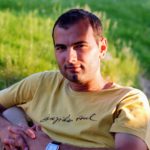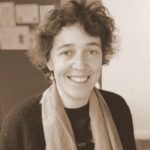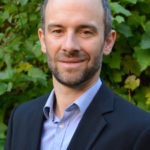June 3 from 13:30-15:00 (CEST). Side event at the All-Atlantic 2021 Conference, organised by TRIATLAS, Blue-Action, MISSION ATLANTIC, and AtlantECO.
Watch the entire session in the window below, or on Youtube:
The presentations began with opening remarks from Sigi Gruber, DG Research and Innovation, European Commission, who emphasised the importance of cooperation and connecting researchers from North and South.
“Management of human activities in the oceans towards sustainability must be evaluated on four dimensions: ecological, economic, socio-cultural and institutional,” said Professor Astrid Jarre, with the University of Cape Town.
Although the four projects represented in this event are biased towards natural sciences, taken together, they also contribute new knowledge on socio-cultural, economic and institutional dimensions in case studies around the entire Atlantic.
“To understand what is there and how it will change, both good data and good projection models are needed.”
Pelagic ecosystems of the Atlantic Ocean reveal a magnificent diversity of life from the ever dark deep sea to sun-lit surface waters where primary production starts fueling ecosystem processes. To combat negative effects of climate change and anthropogenic activities, advances in ecosystem analysis, modelling and assessments are yielding robust forecasts on longer timescales providing a baseline to establish sustainable management practices.
In cooperation with fishing communities, scientists and modellers have started to create the first generation of fish forecasting products. Already, in some areas, variables such as sea-surface temperature can be predicted five or more years in advance. When coupled with ongoing work in fisheries research and ecosystem analysis, models are being developed that can predict fish stock distribution and abundance many months in advance. Given the potentially valuable, but also controversial, nature of this scientific work, this briefing seeks to promote a discussion on the societal and policy implications of fish forecasting in the Atlantic Ocean.
Speakers

Astrid Jarre – Professor Astrid Jarre currently holds the South African Research Chair in Marine Ecology and Fisheries at the University of Cape Town, South Africa, and is deputy director of its Marine and Antarctic Research centre for Innovation and Sustainability (MARIS). A marine systems ecologist by background, she is interested in sustainable development in marine social-ecological systems under global change. Members of her group develop methodology for structured decision-making, conducting inter- and transdisciplinary research, bridging the natural and social sciences, as well as the humanities, in support of this approach.
Earlier professional service includes membership of of Science and Advisory Committees of the International Council for the Exploration of the Seas (ICES) and the Scientific Steering Committee of GLOBEC, the SCOR/IOC/IGBP Programme on Global Ocean Ecosystem Dynamics.
 Hugo Sarmento – Professor in the Department of Hydrobiology in the Universidade Federal de São Carlos (UFSCar), Sarmento has a Degree in Biology from the University of Minho (Portugal), a PhD from the University of Namur (Belgium), as well as Postdocs at the Institut de Ciències del Mar (CSIC) in Barcelona (Spain) and at the Universidade Federal do Rio Grande do Norte (UFRN, Natal – Brazil).
Hugo Sarmento – Professor in the Department of Hydrobiology in the Universidade Federal de São Carlos (UFSCar), Sarmento has a Degree in Biology from the University of Minho (Portugal), a PhD from the University of Namur (Belgium), as well as Postdocs at the Institut de Ciències del Mar (CSIC) in Barcelona (Spain) and at the Universidade Federal do Rio Grande do Norte (UFRN, Natal – Brazil).
He is in charge of the Laboratory of Microbial Processes and Biodiversity, his research area is aquatic microbial ecology, with emphasis on biotic interactions, structure and function of planktonic communities. Member of the Steering Committee and contact point for the Brazilian hub of AtlantECO project.
 Juliette Mignot – is a senior researcher at Institut de Recherche pour le Développement (IRD) in , currently working within the Laboratoire d’Océanographie et du Climat (LOCEAN). Her research focuses on understanding the role of the ocean in current and future climate change, with a focus on the Atlantic Ocean and surrounding regions.
Juliette Mignot – is a senior researcher at Institut de Recherche pour le Développement (IRD) in , currently working within the Laboratoire d’Océanographie et du Climat (LOCEAN). Her research focuses on understanding the role of the ocean in current and future climate change, with a focus on the Atlantic Ocean and surrounding regions.
She collaborates in particular with the Sénégal research and operational community, so as to move towards the development climate and marine services in this country.
 Mark Payne – is a senior researcher at the Technical University of Denmark in Copenhagen, Denmark. His research examines how climate change and climate variability impact life in the ocean and how these changes can be predicted. He has pioneered some of the first such marine ecological forecasts and climate services in Europe, for use by both managers and the fishing industry.
Mark Payne – is a senior researcher at the Technical University of Denmark in Copenhagen, Denmark. His research examines how climate change and climate variability impact life in the ocean and how these changes can be predicted. He has pioneered some of the first such marine ecological forecasts and climate services in Europe, for use by both managers and the fishing industry.
He has contributed as an author to the IPCC Special Report on the Oceans and Cryosphere, and is the current chair of the ICES Strategic Initiative on Climate Change Effects on Marine Ecosystems.
Panel discussion
Moderator:
Dr. Thulani Makhalanyane (Deputy Director, Centre for Microbial Ecology and Genomics, University of Pretoria)
Panel:
Jeroen Steenbeek (Ecosystem model developer) is a classically trained software developer and core programmer of the Ecopath with Ecosim (EwE) food web modelling approach. He is based at Ecopath International Initiative (EII, Spain), where he manages the lifespan of the EwE software, assists its user base, and helps applying, extending, and integrating EwE in projects around the world. His research interests center on the use of technique to facilitate and empower environmental sciences, and to enable the uptake of ecosystem models in decision arenas through 3D gaming software. He co-leads WP9 in the TRIATLAS project.
Michael St. John (Systems Oceanographer) research activities have focused on linking ocean hydrodynamics with the emergent properties of marine ecosystems (e.g. trophic level dynamics, fish population dynamics. Tools have included ocean observation, coupled hydrodynamic ecosystem models and machine learning tools. He has coordinated among other projects the EU project EURO BASIN, and is presently in the management teams of MISSION ATLANTIC, the Black Sea BRIDGE-BS project as well as coordinating the modeling efforts linking ecosystem services to micro and macro plastics in the CLAIM project. He has been the co-chair of the IMBER working group ecosystems end to end as well as serving on the drafting team for the scientific focus of the Galway Declaration.
Mônica Muelbert (Oceanographer, Lecturer) is currently involved in the Steering Committee of Marine Ecosystem Assessment for The Southern Ocean (MEASO), AniBOS GOOS Network as well as the SCAR Group of Experts on Birds and Marine Mammals (SCAR- EGBAMM) and the Polar Regions Chapter of the IPCC-SROCC. She is the co-PI of the Brazilian node of the Ocean Tracking Network (OTN – Brazil), and an investigator in the H2020 – TRIATLAS Project. Other research interests and activities involve ecology, biological oceanography, animal telemetry, top-predators as sentinels of environmental variability and change. In addition, she has a special interest in the role of Women in Science and Technology as well as gender equity, diversity and education in Polar Sciences and Oceanography.
Romina Henriques (Molecular Ecologist, Senior Lecturer) is a senior lecturer at University of Pretoria, and is currently the coordinator of international BiodivERsA project GenClim: evolutionary and socio-economic consequences of shifting distribution ranges in commercially exploited marine fishes. Her research focuses primarily in understanding how oceanographic features influence the evolutionary history of marine fishes in the Benguela Current Large Marine Ecosystem (BCLME), and assessing how on-going climatic changes may impact marine biodiversity. She works mainly on commercially exploited fishes, in order to inform management and fisheries policies.
